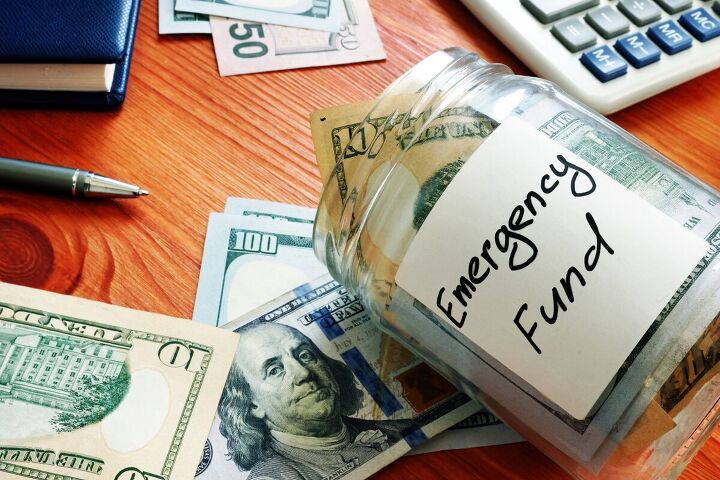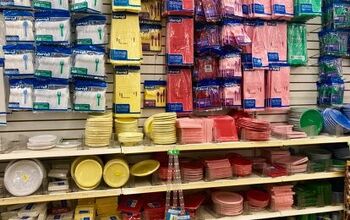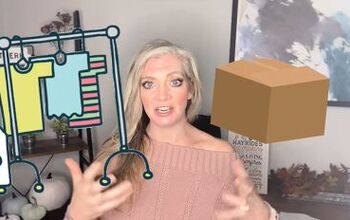7 Financial Wellness Tips to Keep Your Finances Healthy

Today I wanted to bring you seven financial wellness tips. Getting and staying on solid financial footing is important and my tips will help you develop healthy financial habits. Let's dive in so you can get started right away.
1. Trust God with your money
Maybe you are in a season where you are a little afraid or not quite sure what the future holds regarding finances.
Many of us are going through a season of recession. The paychecks are not going quite as far as they used to. Maybe you're going into paycheck number two at the end of the month and you're like, I don't have enough.
That is a space for you to be able to trust God with your finances. How do you do that? Great question.
One way that I have learned to trust God with my finances and trust the future, instead of being afraid and anxious and fearful is through prayer. I created a prayer journal several years ago and I've made it a habit every day to pray for my needs.
Prayer is a great opportunity to build trust with God and to see how your needs are going to be met.
2. Have an emergency fund
When was the last time that you had a dead battery? You had a flat tire, you had to go to the emergency room? Maybe you had a sick child or a pet.
Unfortunately, emergencies are going to happen and one of the best ways that we can be prepared as much as we possibly can for those situations is to have an emergency fund.
A few tips around that is to set money out of your paycheck every month or every pay period for your savings account. I encourage at least $1,000 in your emergency fund.
One way that I refill my emergency fund is there are a couple of times a year when I get a little extra money. One is my tax refund. So I always add a lot of my tax refund into my checking account and my savings account for that.
I also get two extra pay periods per year. So when I get that in the fall and also in May, I will take that amount and add it to my savings account.
3. Utilize a monthly budget
My budget planner has a few budget sheets with a debt tracker, a savings tracker, a bill tracker, a calendar, and so much more to be able to track your expenses and to track where your money is going. A budget is just telling your money where to go.
Having a budget tells your money, okay, I'm going to set money aside for savings. I'm going to set money aside for my housing, my housing expenses of electricity, water, sewer, garbage, and even fun things. We want to budget for fun.
So create a budget, grab all of your sources of income, grab all of your expenses, put them all together, and start putting together a budget.
4. Track your spending
This is one of the best healthy habits for finances I encourage. A lot of times if you go to a health coach, you go to a trainer or a nutritionist they say to track what you're eating. That's the same concept to put into practice for your finances, to see where your money is going.
Maybe you're overspending on coffee, eating out entertainment, maybe too much on groceries, or maybe you're underspending in some areas. It allows you to see where your money is going and what steps you can take to adjust your spending habits.
Something to think about regarding your spending habits is to track also maybe your emotions regarding your spending. We all know the acronym HALT - hungry, angry, lonely, tired. Know the triggers that can wreck your spending budget.
5. Cut the subscriptions and the extras from the budget
We all know that those subscriptions can add up quickly. If it's 3-4-5 and maybe a $19.99 movie subscription, be careful. If you start adding in $2.99 or $5.00 here and there with all of these bloggers and website companies and all these different things it adds up.
Grab maybe a couple of them, but eliminate ones that you know are not going to make an impact on your life.
How many extras are you spending on coffee and eating out, things like that? Allowing yourself to cut back is going to give you a little extra money in your budget to go towards the important things, the basics, home, gas, food, clothing, all of those things.
6. Avoid debt
Avoid debt if at all possible by paying cash. This is a hard one, you guys. I know it's so easy to just put it on a credit card, especially with online shopping.
One thing I always think about regarding spending, and it has held me accountable is thinking about needs versus wants before you go shopping. It cuts back on how much you're going to spend. If I think, I know I need this and it's in the budget, then I will pay for this.
7. Meal plan and cook
This has been one of my favorite healthy habits regarding finances over the last several, several years. I used to spend so much money eating out and going out with friends, which I highly still encourage you to do.
Community is important, but if you are spending $30, or $40 every couple of days eating out, time to rein back in.
A few of the practices that I do regarding meal planning and cooking meals for the week are I set aside time in my schedule. On Sundays or Mondays I will clean out the refrigerator, I will go to the grocery store, will come home, will cook the meals, and do the cleanup and storage.
Financial wellness tips
These are my seven financial wellness tips, which have become habits for financial wellness. What steps are you taking to get into the habit of financial wellness? Leave a comment below to share your tips.






















Comments
Join the conversation
I like how you said prayer journal first!